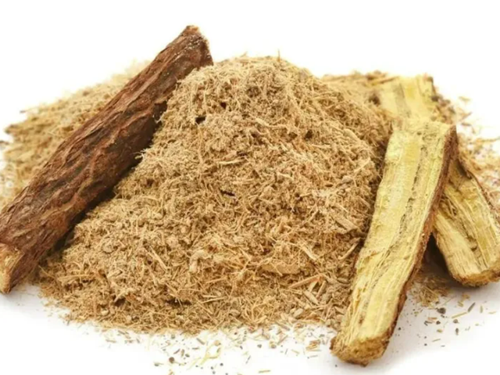Best Herbal Ingredients Used in Veterinary Medicine
Herbal medicine is one of the oldest forms of treatment in all cultures. Herbology is a very powerful tool to treat disease and maintain health in animals and herbal formulas are balanced combinations of several herbs suited to treating a given condition. Herbal therapy is generally well tolerated in veterinary patients and has few side effects, it is often used in conjunction with other therapeutic modalities to achieve the best possible outcome. There are several herbs and their extracts that are commonly used in veterinary medicine for various purposes. Here are some examples:
Echinacea (Echinacea purpurea)
Echinacea pupurea is a perennial herb of the Compositae family, native to central and North America. Echinacea is rich in active ingredients such as Chicoric Acid, mono-caffeyl tartaric acid, volatile oil and polyphenols, is used as an immune system booster and can help fight infections and promote wound healing due to its outstanding anti-infection, anti-inflammation and immune promotion effects.
Echinacea pupurea extract can enhance the body’s resistance to bacterial and viral infection by stimulating the body’s immune system, is widely used as a substitute for synthetic antibiotics and has broad application prospects in livestock and poultry breeding and treatment.
Licorice

Glycyrrhiza Glabra
Medicinal licorice, Glycyrrhiza Glabra, can be used to stimulate the immune system and boost the reticuloendothelial system. This part of the immune system manages specialized cells that find and destroy dead blood cells and invasive microbes. In addition, licorice root can be applied topically to ease itching caused by allergies and dermatitis while holistic veterinarians work to determine the underlying causes. A form of licorice that has had the glycyrrhizin removed, known as deglycyrrhizinated licorice or DGL, is often safer to use for digestive issues and leaky gut syndrome.
Although we usually think of licorice candy when the herb is mentioned, it is not safe to use in long-term doses as it may cause sodium retention and potassium loss. It may also interact with some medications like corticosteroids and blood thinners. For this reason, a holistic vet or herbalist should be consulted for proper dosing.
St. John’s Wort
The herb St. John’s wort (Hypericum perforatum) has proven-effective antidepressant properties and has been used by humans for centuries to help with anxiety, depression and mood disorders. It is thought that they work by affecting the chemical messengers in the brain. However, it can also interact with other medications such as heart and blood regulating medicines. This is why this herb should not be combined with prescription antidepressants or drugs that increase serotonin levels. If this is the case, a treatment plan under the supervision of your veterinarian can be extremely beneficial.
St. John’s Wort Extract has been used in veterinary medicine due to its potential therapeutic properties. The extract contains natural compounds such as hypericin and hyperforin, which have been studied for their anti-inflammatory, analgesic, and antidepressant effects. In veterinary medicine, St. John’s Wort Extract has been used to treat various conditions including anxiety, depression, and skin irritations in animals. It has been found to be effective in reducing anxiety-related behaviors in dogs, such as excessive barking, pacing, and panting. Additionally, the extract has been used to treat mild to moderate depression in horses and other animals. Furthermore, St. John’s Wort Extract has shown promising results in treating skin irritations and wounds in animals. The anti-inflammatory and antimicrobial properties of the extract can help reduce inflammation and prevent infection in pets.
Overall, St. John’s Wort Extract is a natural alternative that can be used in veterinary medicine to help manage certain health conditions in animals. However, it is important to consult with a licensed veterinarian before administering any herbal supplement to your pet.
Turmeric
This ancient spice has been used for centuries as an anti-inflammatory and antioxidant. Turmeric can be used to treat joint pain, digestive issues, wounds, and skin problems. It also helps stimulate the immune system and aid in detoxification.
Sage
Sage (Salvia officinalis) is a common herb that has been shown to have antibacterial, antifungal, and antioxidant properties. It has also been demonstrated to have anti-inflammatory and free radical scavenging properties. Sage was also found to increase lipid peroxidation inhibition and antioxidant enzyme activities in chickens, including MDA, GPX, and CAT (Table 5).
In addition, herbal ingredients extracted from rosemary, Milk Thistle (Silybum marianum), Chamomile (Matricaria chamomilla), Garlic (Allium sativum), Ginger (Zingiber officinale), Hawthorn (Crataegus spp.) and ect are generally considered safe for veterinary use. They has powerful therapeutic properties that help improve gastrointestinal function, liver function and detoxification, respiratory health and more. Herbal medications are generally well tolerated by most pets, and they have few side effects when prescribed properly. But, as with all treatment protocols, veterinary guidance is essential to ensure that the correct formulas are chosen and the right dosage is administered.
It is also important to know that herbal treatments may interact with certain conventional drugs and medications. it’s always best to consult with a veterinarian before administering any herbal remedies to your pet. For example, Saint John’s Wort can increase serotonin levels to dangerous levels when used in conjunction with Prozac (fluoxetine), a drug that is used for behavioral modification. Dosage and potential interactions with medications should be carefully considered to ensure the well-being of the animal.



